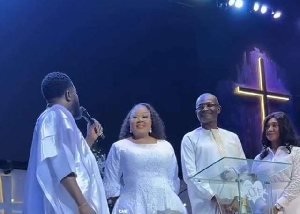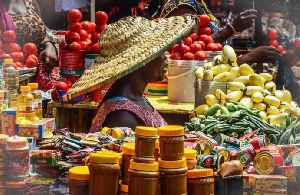On May 25, 1963...30 out of the 32 independent African States founded the Organisation of African Unity (OAU) in Addis Ababa, Ethiopia. The prime agenda was to move the African into a new era of development and prosperity however that has not been achieved after 50 years of existence. The next 50 years calls for innovative leadership especially from those born after 1963 to expedite the dream of our foremost leaders to new heights through strategic thinking and tactical paradigm shift.
Challenges to overcome Dr. Peter Hammond indicates that “since independence, African countries have received far more foreign aid than any other region in the world; more than $300 billion of Western aid have been pumped into Africa however most States are effectively bankrupt, weighed down by debt, and failing to provide even minimum public services. Most African countries have lower per capita incomes now, than they had at independence. Half of Africa’s 880 million people live on less than $1 a day. The entire economic output of Africa is under $420 billion that is just 1.3% of the world GDP”.
The Gains to be Sustained Politics: Most of the African States are adapting to the prevailing form of democracy however much needs to be done to influence peaceful transition of power. Recent developments in Kenya and Ghana indicate that electoral disputes can be adequately settled in the Law Courts instead of running into the bush to instigate needless wars. Economy: Out of the ten growing economies in the world for the past 2 years, seven out of that were African countries. This shows that given the right economic framework Most African countries would be able to grow their economies to be translated into equitable distribution of wealth to the larger populace.
Return on Investment: “Africa offers the highest rate of return on foreign direct investment (FDI) of any developing region in the world”...Hillary Clinton, Former US Secretary of State, 2012. This indicates that Africa is the new destination for growth and development. One may however argue that such statements should be made to reflect on the larger African populace through pragmatic economic framework.
The Strategic Way Forward Some of the strategic factors needed to fuel our sustainable growth should be targeted at equitable trade partnerships. African leaders should have a critical view about the need to form stronger regional blocks (ECOWAS, Southern African Development Community etc) to facilitate a holistic internal trade between African States in order to harness all entrepreneurial talent and economic capacity to form a major economic force. Africa Growth Initiate 2012 report indicates that currently intra-trade among African countries averages around 10% valued at $37 billion. This means that at current rate, 100% intra-African trade could be worth $370 billion however it can be assumed that adding value to commodity exports in addition to efficient tariff system could potentially generate $100 billion from the current 10% intra-African trade within the short-term period of 5-7 years. Moreover, intratrade among the EU countries is around 70%, while that for East Asia is 52% and that for North America is 50%. Imports from sub-Saharan Africa to US were valued at over $74 billion in 2011 alone. One may also put forward that the entire intra-African trade systemneeds to be developed to attract larger market value. For the records, gaining additional 1% of international trade is potentially worth $225 billion annually. There is the need to redefine the current scope of intra-African trade to enable the continent’s industries become more competitive by creating economies of scale and strengthening production value chains. The shifting trade patterns should also facilitate rapid industrialisation on agricultural operations as well as adding value to primary commodity exports, and other natural resources. It is important for policy makers in Africa to recognise the need to enhance economic development through intra-African trade by reducing bottlenecks associated with customs and tariffs as well as enhancing access to ports, airports, railways and efficient connecting intra-country roads. The global trade stands to benefit from a strong and developed African market.
The new African on the block should realise that it is not enough to stand on the fence and criticise but should rather adopt a positive attitude to work smart to change the system because the word ‘Work’ was derived from the Greek word ‘Energie’ which means ‘to become’; in essence, if we desire ‘to become’ a developed and prosperous Continent then we need to work smart! In this regard, a greater sense of Nationalism should replace partisan politics; innovativeness should replace mediocrity; possibility thinking and creating a stronger intra-African trade should be our clarion call.
God bless Africa and make our Continent great and strong!!!
Written by: Kofi Otabil
k.otabil@jklenergy.com
Opinions of Thursday, 30 May 2013
Columnist: Otabil, Kofi














